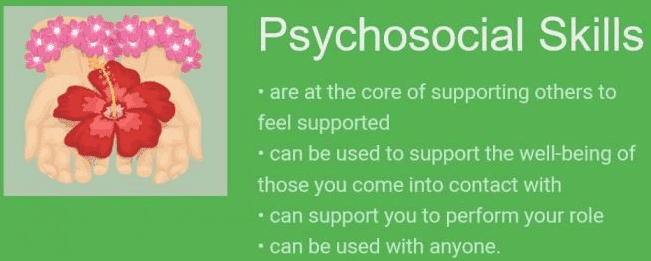Learning Psychosocial Skills as a Hospice Nurse
Published on August 7, 2021
Updated on March 16, 2024
Published on August 7, 2021
Updated on March 16, 2024


One of the hardest lessons to learn as a nurse, in my experience and opinion, is the psychosocial skills necessary to help patients and their families work towards their healthcare goals. These skills are applicable to every field. While I, myself, am still growing as a registered nurse (heading towards my fifth year at the time of authoring this article), I would like to share with you some of the lessons learned. These lessons are based on real-life cases where I will present the scenario, what I did that worked, and what I internally thought of opposite scenarios.
Case 1: Medication compliance related to the patient not taking pills
While patient autonomy and respecting the patient’s right to refuse medications and treatments, even if lifesaving, is a critical component of the patient bill of rights as well as medication administration rules, in my experience one should always explore the reasons a patient is saying “no” to a given medication or treatment.
In scenario 1, adjusting the times of the medications was the answer. In scenario 2 reminding the patient of the benefits AND reminding them the smell goes away once the pills are swallowed was the answer.
Case 2: Everyone else does a better job
You will encounter patients and family members who are never satisfied with any care you provide. The typical theme is that everyone else who previously provided care does a better job than you do.
Breathe, give yourself grace, silently introspect over any area of complaint to determine if there are better ways to handle the situation (do not brush off their complaint as there may be areas to bloom and grow which will help you, the patient and family in question, and others over time). If there are areas you can tweak (internally or externally) to please the patient and family with the complaints, then please do so. Bloom!
Let management know of the complaints and any conflicts so that the team can work with you to deal with the situation. Smile and do your best to exhibit patience, grace, and gentleness towards the patient and family. For some, this is part of their personality and for others, one of the faulty ways they know how to cope. Find ways to compliment, encourage, and bless the primary complainer. While they may not stop their complaints, you may find over time you’ve won them over.
Case 3: Homework for you!
As you are out in the field or in a facility, let your assessment skills grow by observing your managers, your coworkers, and your patients — not for conditions of health, but how they interact in the world around them. Just as you ask yourself questions about pathophysiology, pharmacology, and the like for health conditions, start asking yourself questions about personality types, what drives the person (their inspirations and what encourages them as well as discourages them). When you are dealing with a difficult patient or family member, take a step back and try to start thinking out of the box… what if you were in their shoes? Can you see the forest for the trees?
Numerous tips for hospice nurses
Between Life and Death: A Gospel-Centered Guide to End-of-Life Medical Care
Providing Comfort During the Last Days of Life with Barbara Karnes RN (YouTube Video)
Preparing the patient, family, and caregivers for a “Good Death.”
Velocity of Changes in Condition as an Indicator of Approaching Death (often helpful to answer how soon? or when?)
The Dying Process and the End of Life
Gone from My Sight: The Dying Experience
The Eleventh Hour: A Caring Guideline for the Hours to Minutes Before Death